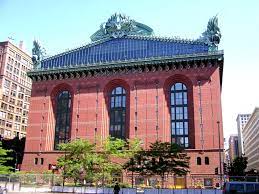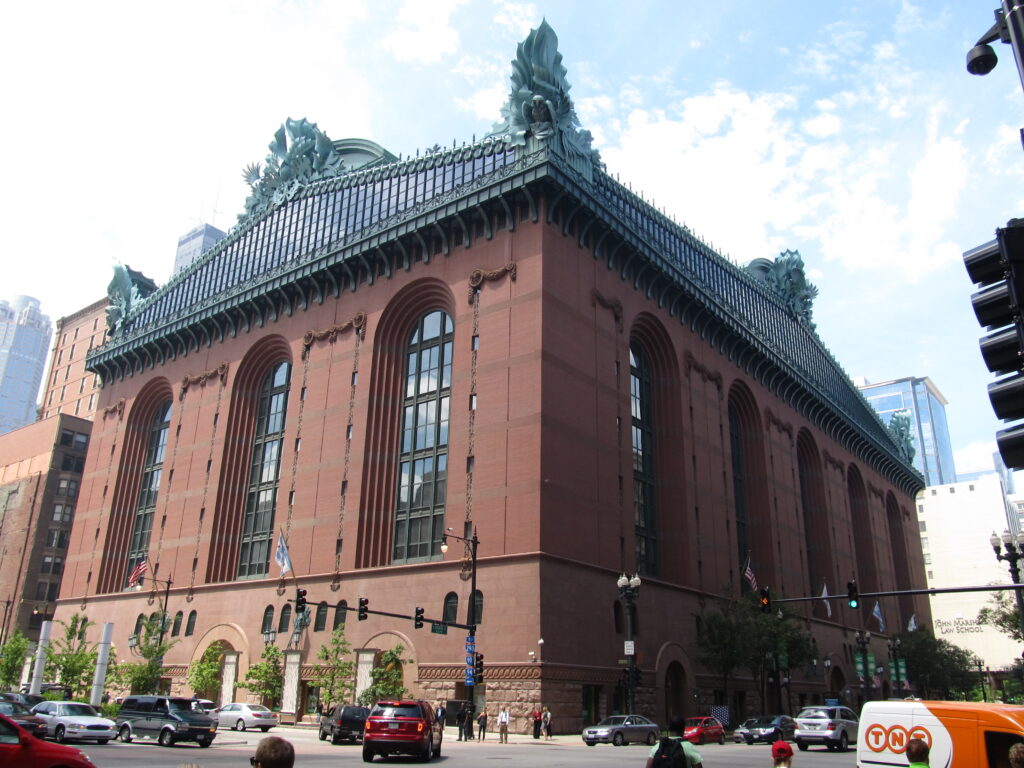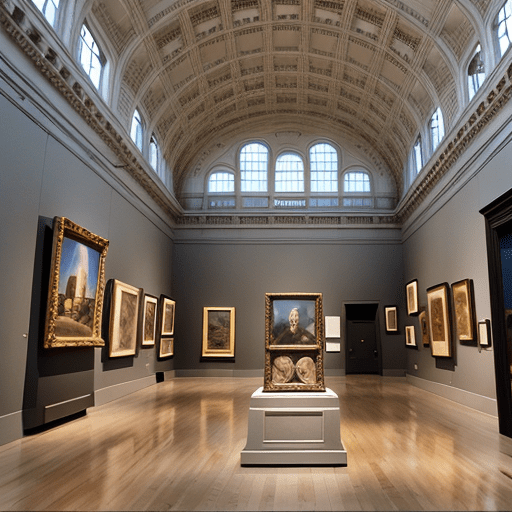The Evolution of Chicago Public Library
As a testament to the power of knowledge and community, the Chicago Public Library stands as a beacon of enlightenment in the heart of Chicago. From its inception in the 19th century to its modern-day avatar, the CPL’s journey is laced with resilience, innovation, and an unwavering commitment to serving the community. Let’s delve into the captivating history of the CPL, shedding light on its origins, growth, and transformation over the years.
The Foundation of the Chicago Public Library

The Birth of an Idea
The seeds of the CPL were sown before the infamous Great Chicago Fire of 1871. Efforts were underway to complement private libraries with a public institution. These efforts bore fruit in 1872 when, under the Illinois Library Act, the city established a library board with a mandate to serve the “common man.”
The First Librarian and Early Days
William Poole, the first librarian, focused on expanding the library’s collections and making them accessible to the public through delivery stations across the city. By 1909, two-thirds of the circulation occurred through these deposit stations, marking the library’s early emphasis on community service.
The Shift in Priorities
The Uplift Mission
In the 1890s, the library’s priorities shifted from service to uplift. This change paralleled Chicago’s broader cultural renaissance, which saw the creation of the Newberry and Crerar research libraries. The three libraries decided to divide areas of study among themselves, thus allocating popular collections to the public library.
The New Main Branch
In 1897, the new main branch opened in an opulent structure in the Loop. Both the architecture and the books were intended to influence and uplift patrons. However, political actions drastically reduced the budget for acquisitions and neighborhood services.
The Return to Service
The Whole City Plan
The ideals of progressive reformers soon returned the library to its service-oriented mission. Librarian Henry Legler’s 1916 proposal, “A Library Plan for the Whole City,” was a testament to this shift. The plan, which called for an extensive network of neighborhood libraries and regional districts, was executed by Legler’s assistant Carl Roden.
Roden’s Tenure
During Roden’s tenure as librarian (1918–1950), the branch library system grew by 50 percent, and circulation reached unprecedented heights. However, the library’s resources remained limited due to financial constraints.
The Post-War Period
The 1960s: New Neighborhood Branch Libraries
In the 1960s, several new neighborhood branch libraries were established in constructed or leased storefronts and reading rooms. The library’s collections, however, remained without a central building until 1991, leading to a public debate over the future of the central library.
Central Library Renovations
In 1977, the refurbished original building reopened as Chicago’s Cultural Center, housing the library’s new special collections unit. Meanwhile, the rest of the collections remained warehoused outside the old library, awaiting a new central building.
The Harold Washington Library
Mayor Harold Washington’s strong support led to the construction of a new central library on the corner of Congress Parkway and State Street. Named in his honor, the Harold Washington Library opened in 1991, symbolizing a renewed emphasis on public service.
The Daley Era and Library Expansion
Mayor Richard M. Daley prioritized branch libraries and supported a special bond measure for their reconstruction. Under Library Commissioner Mary Dempsey’s leadership, the library revised its mission statement and developed a Five-Year Strategy for growth.
The New Millennium: A Commitment to Outreach
Between 1989 and 2002, the CPL built or renovated 41 libraries and initiated construction on several others. A commitment to outreach, manifested through public programs and special events, dramatically increased library usage. Another 14 new neighborhood projects were slated for completion by 2004.
The Digital Transformation
Technological Advancements
From providing access to a vast selection of databases to offering internet computers and Wi-Fi, the CPL has embraced the digital revolution, enhancing its services for the modern user. In 2013, the library opened its Innovation Lab, featuring a Maker Lab with 3D software, milling machine, laser cutters, and 3D printers.
Recognition and Rankings
A study released by Heinrich Heine University in Düsseldorf, Germany in 2013, ranked the CPL first in the United States and third in the world among libraries taking leadership roles in supporting “smart cities” in a “knowledge economy.”
Elimination of Overdue Fines
In a landmark decision in 2019, CPL became the largest public library system in the United States to eliminate fines for borrowed overdue items. All existing fines were forgiven, marking a significant step towards promoting unrestricted access to knowledge.
Leadership Transitions
Over the years, CPL’s leadership has experienced several transitions, with each new Library Commissioner bringing their unique vision to the table. Chris Brown, appointed Library Commissioner in February 2021, is the current head of the CPL.
The 150th Anniversary
The CPL celebrated its 150th anniversary in 2023 with an exhibit exploring the history of its branches, shedding light on the library’s rich heritage and the evolution of its services.
Today’s Chicago Public Library: A Community Anchor
Today, the Chicago Public Library continues to be a vital community resource, providing access to a vast collection of books, databases, and digital resources. Furthermore, it offers an extensive range of free programming, including the One Book One Chicago program, The Summer Learning Challenge, and the Law at the Library lecture series.
The story of the CPL is a testament to the enduring power of public libraries. Despite the challenges and changes of the past century, the CPL has remained committed to its mission, embodying the spirit of resilience, innovation, and service that defines the city of Chicago itself.


